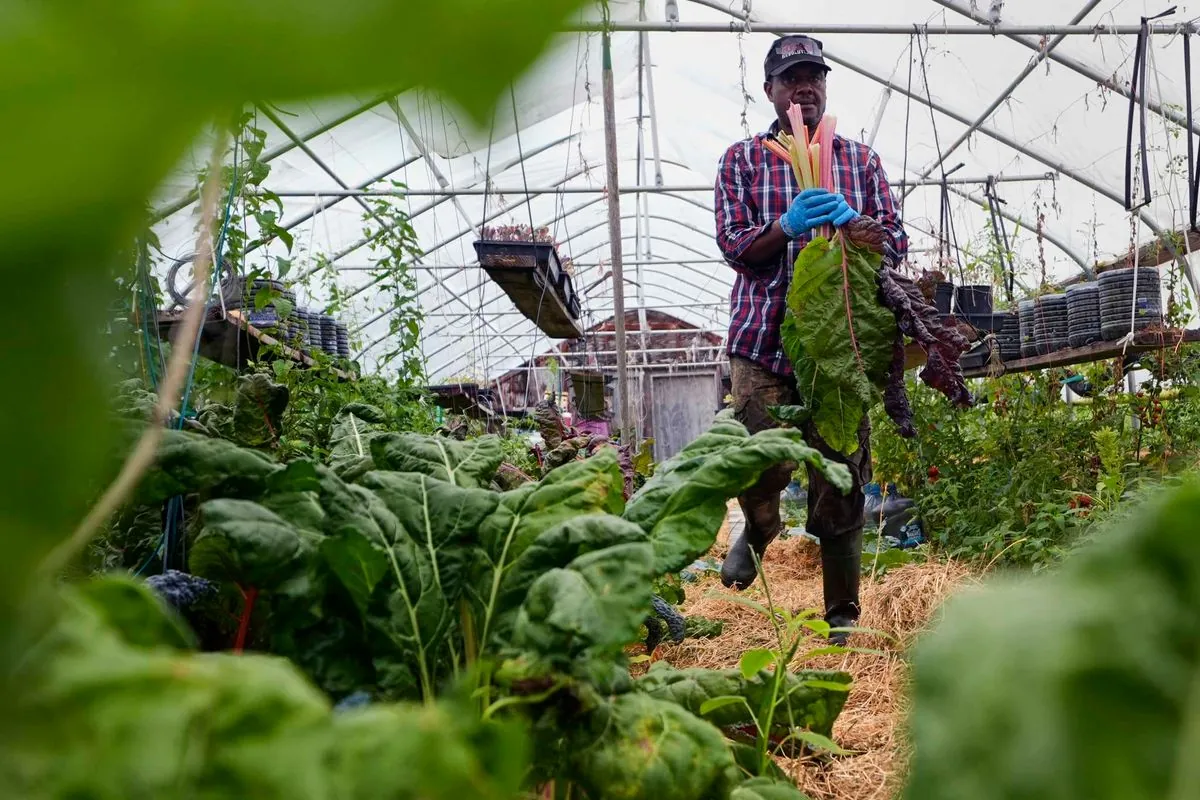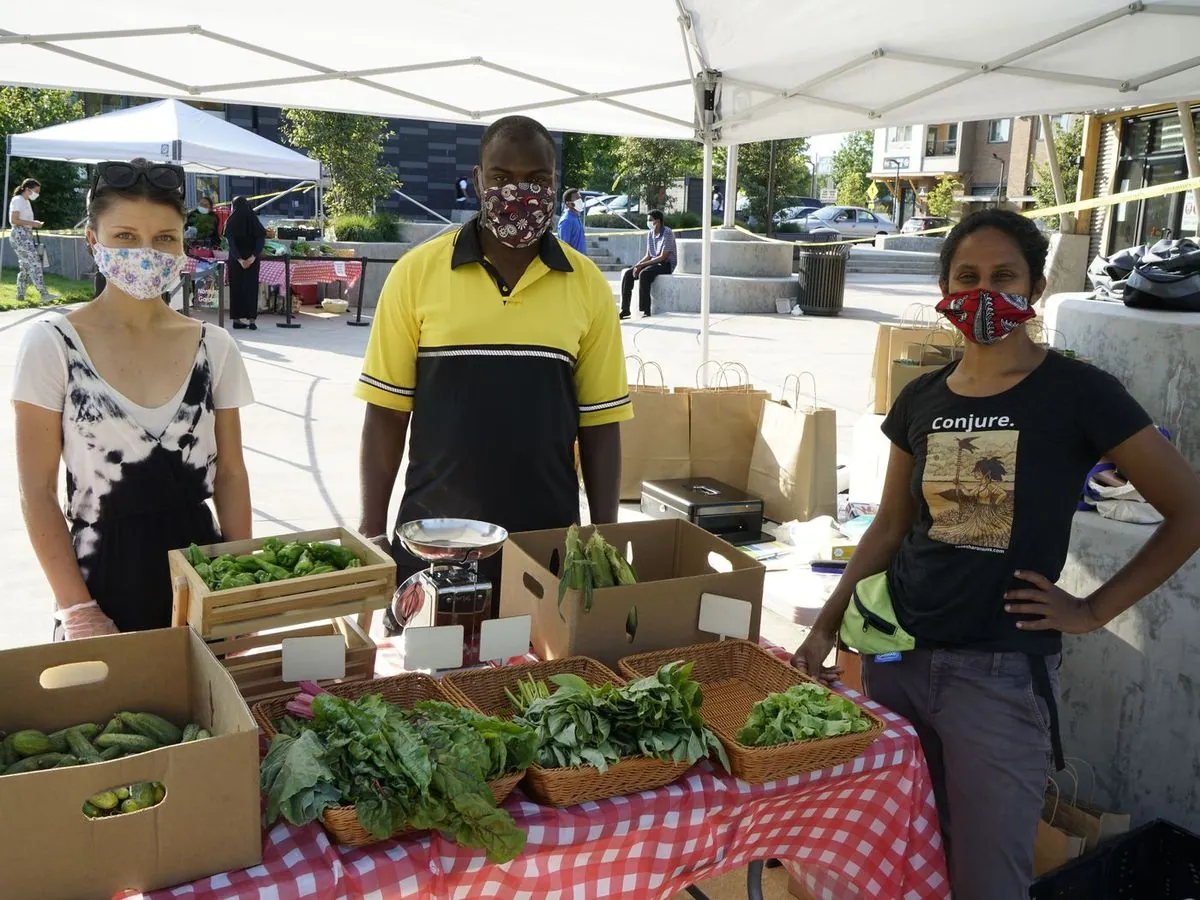Refugee Farmers Cultivate New Lives in New Hampshire
In Dunbarton, New Hampshire, refugee farmers from Africa are growing both familiar and American crops. This unique initiative, supported by a local nonprofit, helps them build businesses and connect with their new community.

In the heart of New Hampshire, a state known for its picturesque landscapes and rich agricultural heritage, a unique farming initiative is taking root. Refugee farmers from various African nations are cultivating new lives alongside their crops, blending traditional practices with American agriculture.
At a farm in Dunbarton, a town named after its Scottish counterpart, farmers from Burundi, Rwanda, Somalia, and the Democratic Republic of Congo are growing a diverse array of produce. These individuals, who have escaped harrowing conflicts in their home countries, are now running small businesses, selling their harvests to local markets and within their ethnic communities.
The Organization for Refugee and Immigrant Success (ORIS), a New Hampshire-based nonprofit, is the driving force behind this initiative. ORIS provides land, training, and support to 36 farmers from five African countries and Nepal, operating farms in Dunbarton, Concord, and Boscawen.
Tom McGee, a program director with ORIS, explains, "These farmers are independent business owners partnering with our organization to bring this produce to life in America. It's a way for them to participate in the American dream and find a sense of belonging."

One of the farmers, Khadija Aliow from Somalia, expresses her joy: "I like it in the USA. I have my own job. I'm so happy." Somalia has faced ongoing civil unrest since 1991, making Aliow's new life in America particularly meaningful.
Sylvain Bukasa, another farmer, shares his journey. He fled the conflict in the Democratic Republic of Congo in 2000, a country that has experienced turmoil since the 1960s. After spending six years in a Tanzanian refugee camp, Bukasa arrived in the U.S. in 2006. "I was worried for my safety," he recalls. "I decided to just go somewhere where it's a little bit safer."
Bukasa began farming at the Dunbarton site in 2011, initially growing traditional crops for personal consumption. As demand grew, especially during the recent global health crisis, the farm evolved into a commercial operation.
The farmers cultivate a mix of American staples like corn and tomatoes, alongside crops from their homelands such as okra and sorrel. Okra, native to Africa, and sorrel, known for its sour taste, are particularly popular among the ethnic communities they serve.
ORIS operates a food market in Manchester, New Hampshire's largest city, where customers can purchase fresh produce or subscribe to delivery boxes. This model, similar to community-supported agriculture initiatives that originated in the 1960s, helps connect the farmers directly with consumers.
While farming provides the primary income for some, most, like Bukasa, balance it with full-time jobs. Bukasa works as a service agent for a rental car company, tending to his acre of land whenever possible.
The U.S. Refugee Resettlement Program, established in 1980, has made it possible for individuals like Bukasa and Aliow to rebuild their lives in America. As the country that accepts more refugees annually than any other nation, the U.S. provides work permits to refugees upon arrival, enabling them to seek employment and entrepreneurial opportunities.
As urban agriculture gains popularity across the U.S., initiatives like the one in Dunbarton serve as a model for integrating refugee communities while promoting sustainable local food systems. For these farmers, the harvest is more than just crops; it's a taste of home and a path to a new future.
"It's a hard job, but hard work is good work. It's fun and it helps people. I like when I satisfy people with the food that they eat."
Bukasa dreams of owning his own farm someday, but for now, he focuses on expanding his market reach and reducing waste. As he gestures towards his fellow farmers, he grins, acknowledging the friendly competition that drives them all to succeed in their new home.


































